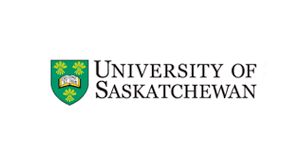University of Saskatchewan: USask among top 100 globally in water, veterinary and environmental engineering sciences
USask ranked 23rd worldwide and first in Canada in water resources, from 51-75 globally and fourth in Canada in veterinary sciences, and 76-100 globally and sixth in the country in environmental science and engineering.
“We are proud that USask continues to lead Canada and is among the top performers globally in water science,” said USask Vice-President Research Baljit Singh.
“With more than 1,000 universities added to the GRAS rankings since last year, our continued high performance in areas ranging from veterinary science to the earth sciences is encouraging as we work hard to achieve our goal to be the university the world needs.”
The consultancy uses several objective academic indicators and third-party data to measure the performance of universities in 54 subjects across the natural sciences, engineering, life sciences, medical sciences, and social sciences, for the GRAS rankings. Factors considered are research output, research influence, international collaboration, research quality, and international academic awards.
Other strong standings for USask were in agricultural science (101-150th, tied for fourth in Canada), as well as 150-200th placements in energy science (tied for fourth in Canada), earth sciences (tied for seventh nationally) and law (tied for ninth in Canada).
USask ranked 200-300 globally in atmospheric science, chemical engineering, ecology, food science and technology, materials science and engineering, medical technology, and nursing.
More than 1,800 out of the 5,000-plus universities from 96 countries and regions were listed in the final GRAS report, released in late July. ShanghaiRankings Consultancy also publishes the annual Academic Ranking of World Universities (ARWU), commonly known as the Shanghai Ranking. This year’s rankings are expected shortly.
ARWU rankings, which publish the best 1,000 universities worldwide among more than 2,000 ranked, are based on such factors as the number of alumni and staff winning Nobel Prizes and Fields Medals, number of highly cited researchers and articles published in journals of Nature and Science, and per capita performance of a university.

